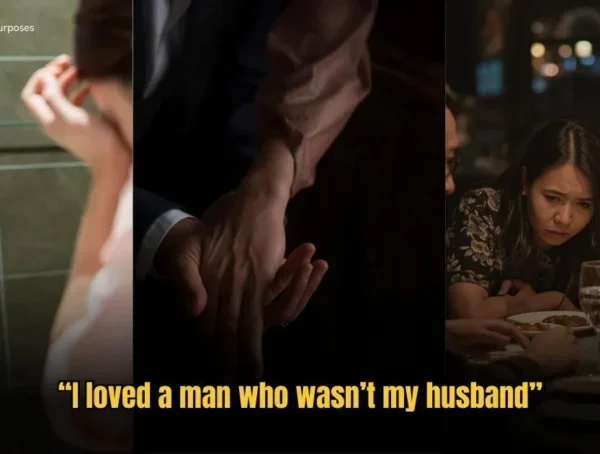As we grow older, we tend to focus only on our romantic relationships. It’s understandable since we’re all looking for someone to spend the rest of our lives with.
Still, there’s another relationship we need to take more seriously too – our friends. Like any relationship, there are times when we’ll need to cut off friends from our lives, simply because they’re toxic for us.

I’ve been there. I’ve had friends which I’ve decided to cut off because the friendship had grown toxic. To tell you the truth – I’m much happier for it.
So, here’s 4 signs you’re in a toxic friendship, and why you need to drop it.
You spend way more effort in the friendship than the other person.
As adults, we all have busy lives. Meeting up with friends is a luxury. Some friends we just can’t see as much as we’d like to, which is fine.
I’ve got friends I don’t see for months on end, but when we do meet, nothing’s changed. We get together and crack jokes at each other’s expense, just like we did before.
But I have this ex-friend, Sarah, who was exhausting. Trying to meet up with her was like trying to get through to the CEO of some fortune 500 company.
It was always, “oh, I got this on Thursday,” and “oh, I’m meeting this other friend on Saturday.” Eventually, we’d settle on a date – two weeks after the call. This went on for as long as we’ve been friends.
By itself, there’s nothing wrong with that. But I can’t think of a time when Sarah returned the gesture. I can’t remember a time when she put in the effort, trying to meet me.
Let me clarify – there’s nothing wrong with being busy. But you can tell the difference between a friend who’s genuinely busy, and a friend who just doesn’t have you very high on their priority list.
For me, I realised this because Sarah and I had common friends. Unlike me, they never seemed to struggle with meeting her as much as I did. If they were busy that week, no problem – they’d meet up another time.
And that’s how a friendship should be. Meeting up is effortless if both parties want to see each other. You shouldn’t have to feel like you’re forcing the other person come out to see you.
Looking back, it wasn’t Sarah’s fault. Maybe she just felt bad for me and decided to play along. Or maybe she just didn’t know how to tell me I was coming on too strong (as a friend). Or maybe she was trying to tell me, but I couldn’t read in between the lines.
At any rate, it’s not a good sign if you feel like you’re putting in more effort into a friendship than your friend. Like any relationship, it should be on equal footing. It won’t work if someone is working harder at it than the other.
If you feel that way, it’s time to cut these friends loose and prioritise the people who do want to see you.
They never make you feel good about yourself.
This one’s tricky, so let me be clear.
Good friendships won’t make you feel good about yourself all the time. That’s how it should be.
Because you’re a human being, there are going to be times when you’re wrong. You won’t always have good judgement, and you’ll need your friend to call you out on it. It’s not going to be pleasant, but it’ll be good for you.
These kinds of friends are healthy. Keep them close.
On the other hand, there are friends who never have anything good to say about you. The ones who criticise everything you do and are always giving you ‘tough love’.
Those are the friends I’m talking about.
It’s not that you should avoid all criticism about yourself – but having to hear it all the time isn’t healthy. When your friends constantly remind you of your bad qualities, you start to think that that’s all you are.
I had this other toxic friend, Sue Lynn, who was constantly giving me ‘tough love’. Whenever I confided a problem to her, the first things she’d say was always, “yeah, but you could have…”
At first, I respected her opinion, but after a while, it took a toll on me. Whenever we met, I’d end up feeling bad about myself. It seemed to me that she couldn’t see anything positive about me. And since I looked up to her, I ended up having the same view about myself too.
At one point I just had enough and thought, “If you think that lowly of me, why are we even friends?”
Eventually, Sue Lynn and I fell out of touch. Since then, I felt a lot better about myself. I was able to see not just the bad in me (I’ve accepted that I’ll forever be a work in progress), but the good in me too. After cutting her off, my mental and emotional health improved.
The ability to assess yourself honestly doesn’t just mean you see the bad parts. You have to acknowledge your good parts too. If a close friend of yours is stopping you from doing that, then you’re better off not being friends with them.
On the other hand, there are friends on the other end of the spectrum…
They make you feel too comfortable about yourself.
You know, the kind of friends you make you feel good even though they’re unhealthy for you. The ones who enable your bad habits and stop you from improving yourself.
I had this one friend, Iqral, (yeah, I’ve cut off quite a few friends from my life) who’d come around and hang out. Our routine was always the same – we’d smoke up, order fast food, and watch movies until dawn.
At one point, this happened every weekend. It was so comfortable, that eventually, it became a habit. We became lazy and gained weight. We didn’t socialise or try anything new.
We also had this horrible habit of gossiping and talking bad about our colleagues at work. Focusing on their shortcomings made us feel better about ourselves. I didn’t show it, but inside I hated myself for being that way.
Eventually, I switched jobs, which took up my weekends as well. It took most of my time, so I couldn’t hang out with Iqral as much anymore.
I lost weight and became much more productive. It was such a relief to focus more on myself instead of other people, and I did healthier activities like going to the gym and hiking.
These friends aren’t bad people, but being with them stops your growth. Not only do you get stuck in the same routine, but worse, you get stuck in the same mindset. You’ll exist in an extremely limited comfort zone.
Plenty of motivational figures such as Gary Vaynerchuk and Les Brown talk about “surrounding yourself with quality people.” That’s because who you spend time with will influence you.
If you’re friends with motivated, productive people, you’ll be motivated and productive too. If you’re friends with people with bad habits, you’ll pick those up as well.
Friends are people we spend a lot of time with, and they do affect you. If you feel like your friends are a bad influence on you, you need to cut them off.
They only come looking for you when they have something they need.
This one is a personal pet peeve of mine. These are friends who’ve disappeared for several years from your life, and then suddenly reappear – with a request.

source (imgflip): https://imgflip. Com/i/29h97v
Rachel, who works with a major online shopping portal had this to say about friends like these.
“I have friends who say that we should catch up, but then they go MIA. That’s fine, but what I don’t like is when they suddenly text you out of the blue one day, because they want vouchers for shopping. Some of them even text me when they don’t get their parcel!”
I almost feel like I shouldn’t include this entry in this article because people like these aren’t friends. They’re just opportunists – your value to them is the extent of your job and what you can do for them.
As I mentioned before, friends are people who add value to your life. They should pick you up when you’re down, correct you when you’re being destructive, and encourage you to be better.
I’m not saying you shouldn’t network with people. That’s one of the skills you’re going to have to learn if you’re going to be an adult. But networking and friendships aren’t (or at least shouldn’t be) the same thing.
For me at least, networking is being professional and making it clear that it’s an exchange of services. For example, I’m a writer, and you’re a publisher – great. Let’s have lunch one day and talk about what we can do for each other. We’ll stay in touch when it comes to business, but that’s all there is to it. We won’t talk about our personal lives.
Friendships, on the other hand, should be personal. You should share things you don’t share with strangers. You should build a connection which benefits both of you. As friends, you should want to help each other – not use your friendship to get them to help you.
If you have that one friend who only comes round when they need help, it’s time to rethink that relationship. You’re not a tool. Save your extremely limited time for the people you care about.
Do you have experience with toxic friends? Share your story in the comments below!
More from Real Relationships
‘How My Mother-In-Law Ruined My Proposal’ Shares 30 YO M’sian Woman
This is a story about a woman whose proposal was ruined by her future mother-in-law when she announced in front …
“I Had Affairs with Refugee Men” shares 59 year old M’sian woman
This story is about a woman who didn’t go looking for betrayal, she slipped into it through loneliness, silence, and …
I don’t feel anything about his death,’ shares M’sian betrayed by best friend
This story is about a man who learns that the childhood friend who once stole his happiness is now dying, …














